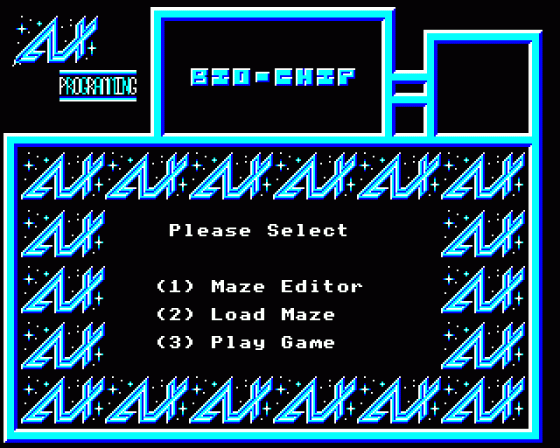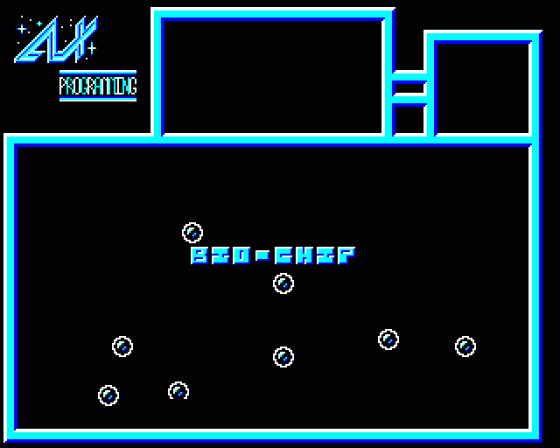
Everygamegoing
 11th December 2023
11th December 2023
Categories: Review: Software
Publisher: Fast Access
Machine: BBC B/B+/Master 128
Supplied On: Fast Access #9
Bio-Chip
OK, I know what you're thinking. The BBC really doesn't need any more versions of Pac-Man. Because, for all of its confusing instructions talking about collecting silicon chips and avoiding the pulsars, Matthew Fifield's Bio-Chip is just yet another 'clear the maze game'. It doesn't do much new, but it's satisfying if you just want a simple way of wasting a few minutes without taxing your brain.
Bio-Chip is written in machine code and, unusually, runs in Mode 1. It has a suitably 'metallic' palette and a playing area that fills roughly two thirds of the screen. You glide a circle around the maze collecting the dots and avoiding the pulsars (which look like crosses) and collect up any of the mysterious upgrades that appear (they look like question marks). From the description it sounds quite basic but the graphics are actually extremely good. When you do pick up an upgrade, you can also choose exactly when to activate it. At random, you'll receive a bomb (which stuns the pulsars and makes them unable to move); a running shoe (which lets you move at double speed), a transporter (which allows you to teleport back to the starting position) or a shield (which lets you glide through pulsars). The effects disappear after about five seconds.
Whilst it's worth repeating that Bio-Chip doesn't do anything new, it is a lot more polished than many BBC Pac-Man clones. If you've ever played the very arse-end of them, Kansas City's Munchman, then Bio-Chip is everything that that game should have been. It even has a nice opening sequence where the game logo is surrounded by bouncing bubbles, and atmospheric 'Get Ready' and 'Game Over' sequences. Heck, there's even a very easy-to-use maze editor in there too. Meaning that you could almost consider it one of the very best Pac-Man clones available.
So why is this probably the first time you've ever hearing about it? Well, because it was tucked away on a mail-order only user group disc with, I suspect, only a handful of subscribers: Fast Access. Certainly it's one of the better games from that series and, if you like simple retro games that call for quick reactions (and a bit of skill) then it's worth a play.




